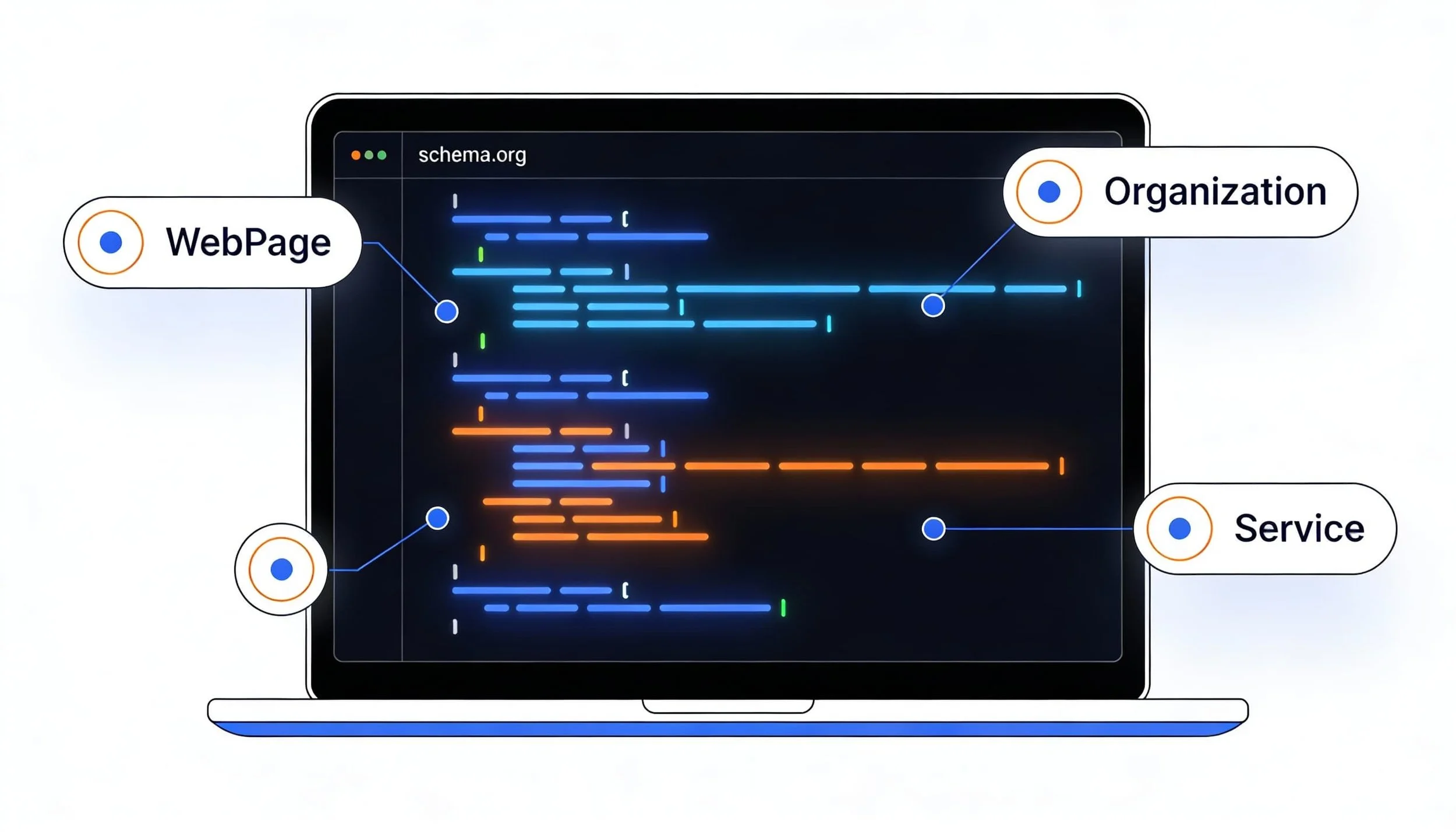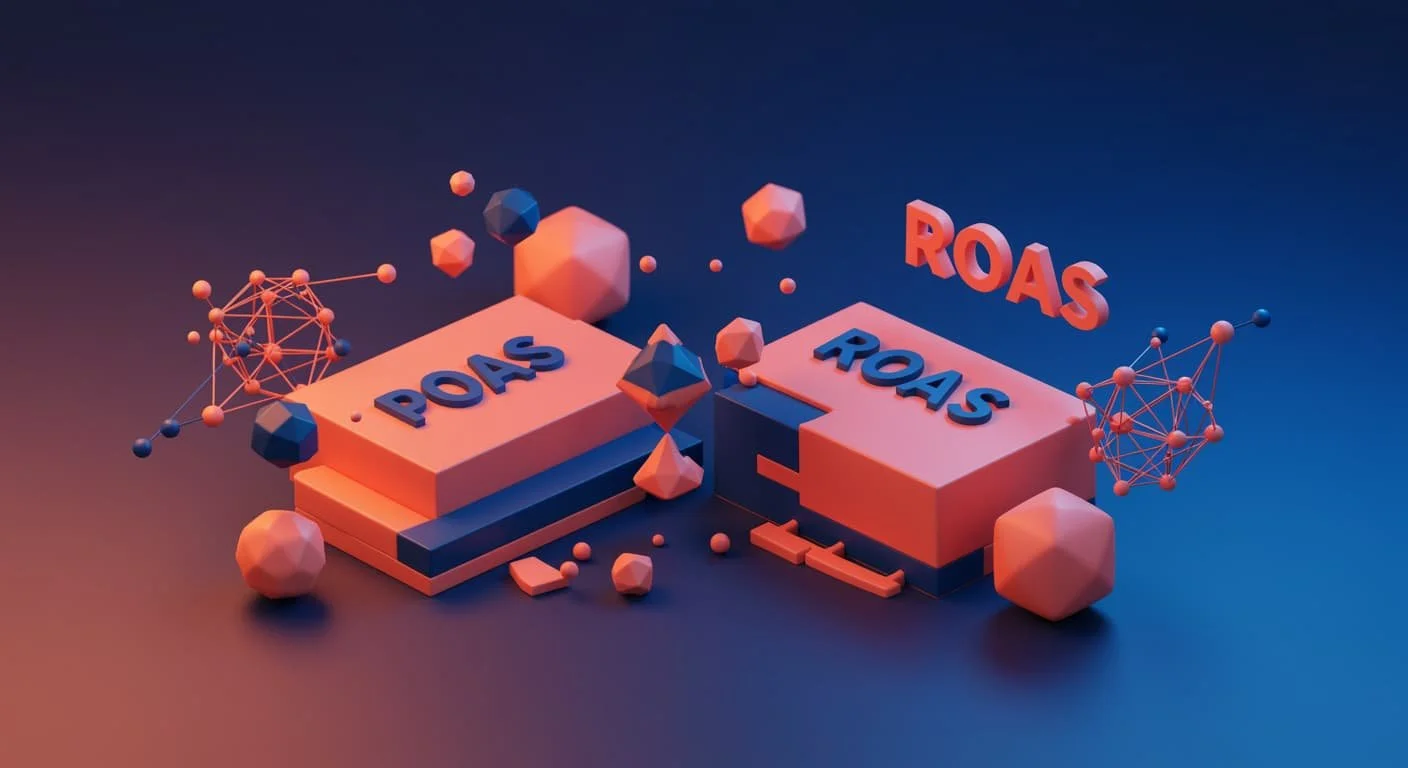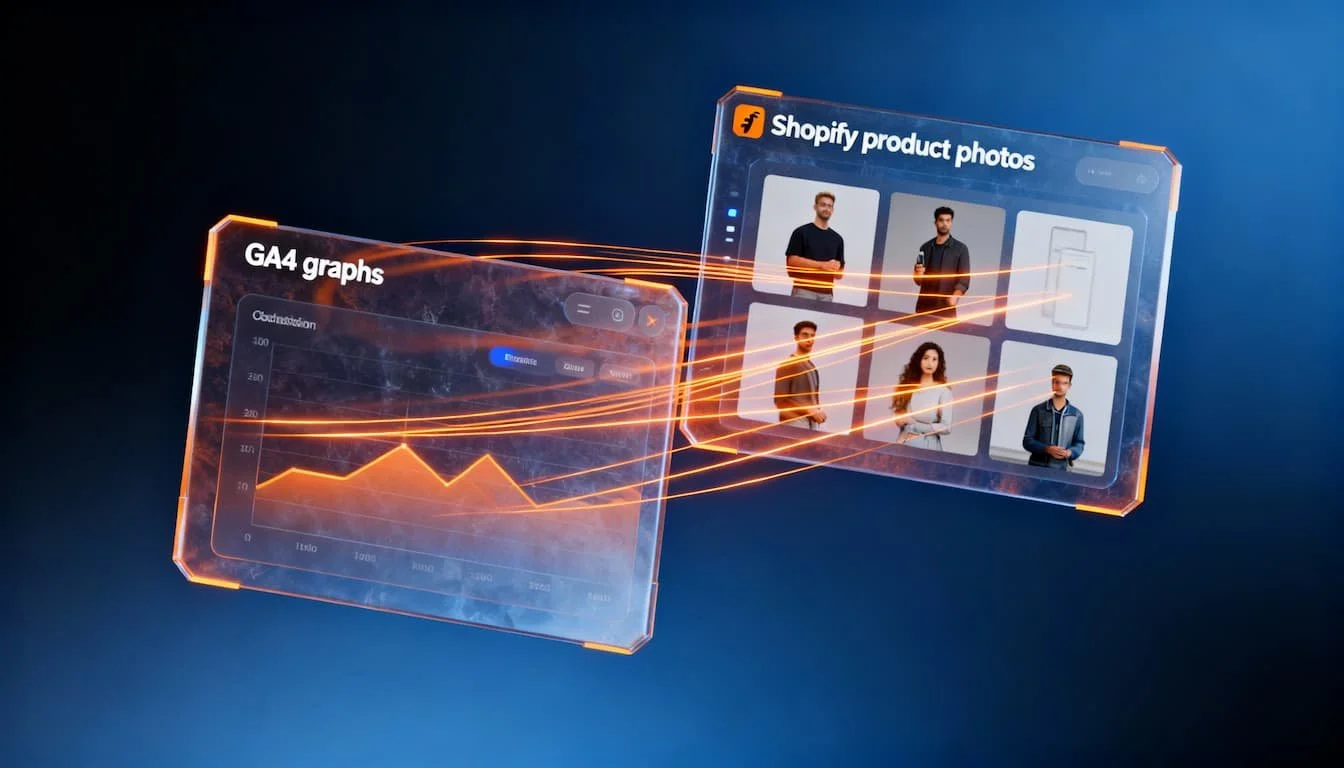Shopify SEO Checklist for a Converting Online Store
- Core Web Vitals: LCP under 2.5s, FID under 100ms, and CLS under 0.1 are essential for ranking
- Mobile-first: Google only indexes mobile versions - 75% of traffic is mobile
- Structured data: Schema markup increases AI visibility by 30% and improves rich snippets
- AI-proof content: Conversational headers, FAQ sections, and semantic keywords for GEO-optimization
- Timeframe for Results: First SEO results after 3-6 months, significant improvement within 6-12 months
E-commerce is becoming increasingly competitive, and your Shopify webshop must compete not only with other online stores but also with AI-driven search results and zero-click searches. This comprehensive checklist will help you remain visible and grow in 2026, both in traditional search engines and on AI platforms.
Technical SEO: Getting the Basics Right
1. Core Web Vitals Optimization
Google's Core Web Vitals have become essential for ranking. Your Shopify store must excel in:
Largest Contentful Paint (LCP): Aim for under 2.5 seconds
First Input Delay (FID): Less than 100 milliseconds
Cumulative Layout Shift (CLS): Under 0.1
“Websites that meet all Core Web Vitals see an average of 24% more conversions than sites that do not.”
Concrete steps:
Use Google PageSpeed Insights to measure your scores
Optimize images with WebP format and lazy loading
Choose a fast Shopify theme like Dawn
Minimize CSS and JavaScript
2. Mobile-first indexing perfection
Google now only indexes the mobile version of your site. Your mobile experience is now your primary SEO asset.
Concrete steps:
Test your site weekly with Google's Mobile-Friendly Test
Check if all content is available on mobile
Ensure buttons and links are easily clickable (minimum 44px)
Implement Accelerated Mobile Pages (AMP) for blog posts
3. Structured data for AI visibility
Schema markup not only helps Google, but also AI tools like ChatGPT and Perplexity to better understand your content.
Concrete steps:
Implement Product schema for all products
Add Organization schema to your site
Use Review schema for customer reviews
Test with Google's Rich Results Test
Read more about structured data implementation
“Structured data helps search engines and AI tools better understand and categorize content, which can lead to improved visibility in search results and AI-generated answers.”
Content optimization for SEO and GEO
4. AI-proof content structure
Your content should be optimized for both search engines and AI tools:
Concrete steps:
Use conversational headers that answer questions
Structure content with a clear H2/H3 hierarchy
Add FAQ sections to product pages
Write summaries at the beginning of long-form content
5. Semantic keyword optimization
Go beyond exact match keywords. Google understands context better than ever.
Concrete steps:
Use AnswerThePublic for conversational queries
Optimize for voice search queries
Focus on topical authority by covering complete topics
Implement LSI keywords (Latent Semantic Indexing)
6. Product descriptions that convert
Unique, comprehensive product descriptions are essential:
“Comprehensive, unique product descriptions are essential for SEO because they provide more context to search engines and help users make better purchasing decisions.”
Concrete steps:
Write a minimum of 300 words per product description
Answer frequently asked questions in the description
Avoid duplicate content from suppliers
Integrate customer intent keywords
Read more about e-commerce SEO tips
Technical Shopify optimizations
7. URL structure and navigation
Concrete steps:
Use short, descriptive URLs:
/collections/sportschoenen/nike-air-maxImplement breadcrumbs on all pages
Create a logical category structure
Ensure a maximum of 3 clicks to reach any product
8. Internal Link Structure
Concrete steps:
Link related products to each other
Create hub pages for important categories
Implement "frequently bought together" sections
Link from blog posts to relevant products
Check out our SEO services for professional assistance
9. Sitemap and HTTPS Optimization
Concrete steps:
Submit your sitemap to Google Search Console
Block unnecessary pages in robots.txt (
/checkout,/cart)Ensure all external resources load via HTTPS
Implement HSTS (HTTP Strict Transport Security)
Content Marketing and Link Building
10. Blog Optimization for Dual-Purpose SEO
Your blog should optimize for both Google and AI tools:
Concrete steps:
Publish 1-2 comprehensive posts (1500+ words) weekly
Use the skyscraper technique for competitive keywords
Implement topic clusters
Combine AI tools with SEO
11. Video SEO Integration
Concrete steps:
Add product videos to every product page
Optimize video titles and descriptions
Use video transcripts for SEO
Implement VideoObject schema markup
12. Link-building strategy 2026
Concrete steps:
Focus on digital PR and brand mentions
Create linkable assets (studies, tools, calculators)
Build relationships with bloggers in your niche
Consider performance marketing for faster results
Local SEO and AI optimization
13. Google Business Profile optimization
Concrete steps:
Claim and optimize your Google Business Profile
Add your Shopify store as a website
Use local keywords in product descriptions
View local SEO strategies
14. Improve AI visibility
Concrete steps:
Test your brand in ChatGPT and Perplexity
Optimize for zero-click searches
Create authoritative content that AI tools cite
Implement E-A-T signals (Expertise, Authoritativeness, Trustworthiness)
Read more about GEO strategies
15. Conversational search optimization
Concrete steps:
Optimize for "near me" searches
Use natural language in headers
Implement FAQ schema markup
Focus on long-tail conversational keywords
Analytics and Shopify-specific optimizations
16. Advanced tracking setup
Concrete steps:
Implement Google Analytics 4 with enhanced e-commerce
Set up Google Search Console for all domains
Use Shopify Analytics for conversion tracking
Consider CRO optimization for better conversions
17. Theme and app optimization
Concrete steps:
Choose an SEO-friendly theme
Audit your apps for SEO impact
Remove unnecessary apps that slow down your site
Review Shopify app trends
Consider AI-driven Shopify apps
E-commerce and trending SEO facets
18. Product and category page optimization
Concrete steps:
Use high-quality product images (minimum 1000px)
Implement image alt-texts with keywords
Add product reviews and ratings
Write unique category descriptions
Use canonical tags for filtered pages
19. Sustainability and social commerce
Concrete steps:
Implement green hosting
Create content about sustainability
Optimize product feeds for social platforms
Use user-generated content
Read more about sustainable e-commerce
20. AI personalization
Concrete steps:
Implement AI-driven product recommendations
Use dynamic content based on user behavior
Optimize for personalized search results
Explore AI applications for your webshop
“SEO strategies must adapt to both traditional search engines and AI platforms. The future lies in optimizing for different types of search behavior and technologies simultaneously.”
Ready to take your Shopify SEO to the next level? This checklist provides a solid foundation, but every business is unique. A personalized SEO strategy can make the difference between just competing and leading the market.
Do you need help implementing this strategy? Check out our Shopify e-commerce services or schedule a no-obligation consultation to see how we can optimize your webshop.

🚀 More leads, higher conversion, better ROI
This article provided you with insights. Now it's time for action. Whether you want to build a profitable webshop, generate more revenue from performance marketing or SEO, or grow with AI marketing – we provide concrete support to help you move forward.
💬 Discuss your challenge directly with Frederiek: Schedule a free strategy call or send us a message
📧 Prefer to email? Send your question to frederiek@clickforest.com or call +32 473 84 66 27
Strategy without action remains theory. Let's take your next step together.
Frequently Asked Questions about Shopify SEO
-
On average, you'll see initial results after 3-6 months, but significant improvement can take 6-12 months.
-
Not necessarily. Shopify has many built-in SEO functionalities, but apps can help with automation and advanced features.
-
Evaluate your strategy every 3 months and adjust based on performance data and algorithm updates.
-
Focus on organic traffic, conversion rate, average order value, and keyword rankings for your key products.
-
Use natural language, focus on long-tail keywords, and optimize for local searches.
-
Duplicate content, slow loading times, no mobile optimization, and lack of structured data.
-
Very important. Focus on quality over quantity and build links to both product and content pages.
-
AI tools can assist with keyword research, content optimization, and automation, but they do not replace a sound SEO strategy.
-
Use descriptive filenames, alt-text with keywords, and compress for speed without losing quality.
-
It depends on your target audience and products. Google Ads vs Facebook Ads compares both platforms in detail.
-
For complex optimizations or quick results, a digital expert can be valuable. It saves time and prevents costly mistakes.
Sources and references
Technical SEO & Core Web Vitals:
Google Search Central: “Core Web Vitals & Page Experience” – guidelines and thresholds for LCP, FID/INP, and CLS – https://developers.google.com/search/docs/appearance/core-web-vitals
Google Search Central: “Best practices for ecommerce sites in Google Search” – URL structure, structured data, and mobile-first for online stores – https://developers.google.com/search/docs/specialty/ecommerce
Shopify & e-commerce SEO guides:
Shopify: "The complete SEO checklist: 43 tips for 2025" - https://www.shopify.com/blog/seo-checklist-online-store
Backlinko: "Ecommerce SEO: 6 proven strategies to rank higher in 2025" - https://backlinko.com/ecommerce-seo
OptinMonster: "Shopify SEO in 2026: 7 proven steps to dominate Google" - https://optinmonster.com/shopify-seo-guide/
AI search, GEO, and zero-click:
Search Engine Journal: "2025 AI SERP changes: new strategies to gain local search visibility" - https://www.searchenginejournal.com/2025-ai-serp-changes-dac-spa/553864/
Exposure Ninja: "AI search statistics for 2025" - https://exposureninja.com/blog/ai-search-statistics/
Voice & conversational search:
BusySeed: "The rise of voice search: optimizing your digital marketing strategy" - https://www.busyseed.com/the-rise-of-voice-search-optimizing-your-digital-marketing-strategy
WooCommerce: "Voice search and eCommerce: how to prepare your store" - https://woocommerce.com/posts/voice-search-optimization/
Analytics & SEO metrics:
Capston AI: "SEO metrics 2025: 16 powerful KPIs for smarter growth" - https://capston.ai/seo-metrics-2025/











